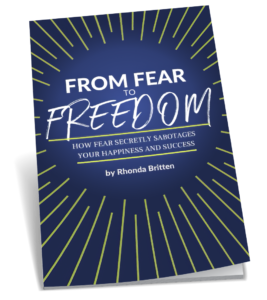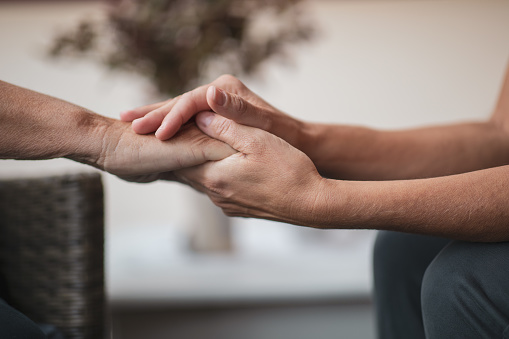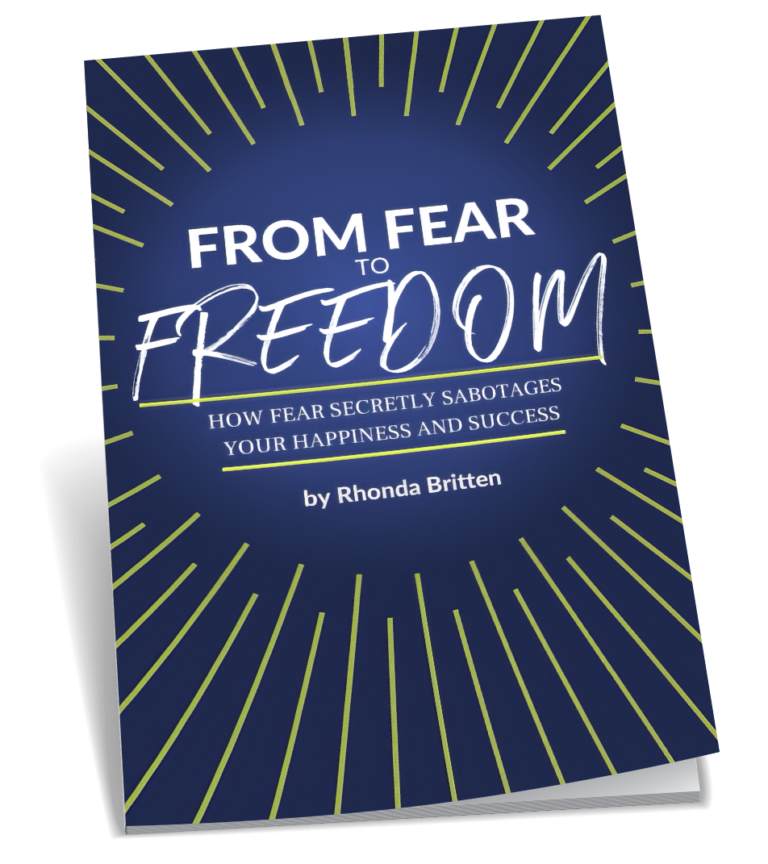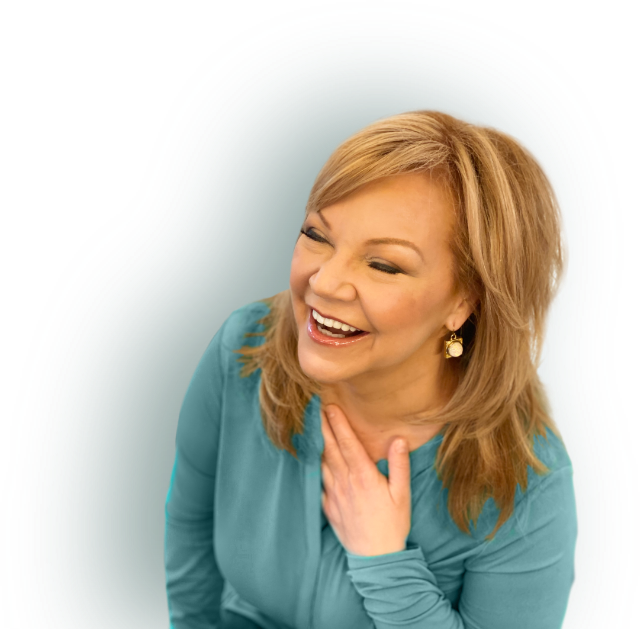Trust is a scary word for so many of us (myself included! 🙋🏼♀️) But when most of us think about trust, we think about trusting other people—trusting our partners, children, friends, family, coworkers, etc. I’m sorry, but I have some news you’re not going to want to hear. Trust is something you need to build with yourself FIRST, and that’s exactly what we’re going to discuss today. Let’s learn why self-trust is important and how to trust yourself one step at a time.
I’ll share how to trust yourself and make confident decisions that you can stand by, as well as my own (continued) journey toward self-trust.
Why Don’t You Trust Yourself?
Trust is the backbone of any healthy, strong relationship. If you don’t trust your partner, you’re not going to last long, or you will continue bearing through a relationship that doesn’t fulfill you. Wanting to trust a romantic partner is something we can all understand and relate to, but what about the trust we hold with ourselves?
What does it mean to not trust yourself? To not trust yourself means:

- You second-guess every decision you make
- You don’t trust your own judgment
- You think you can only make a decision if others around you agree
- You’re not able to stand up for yourself
- You have low self-esteem and lack confidence
- You always look to other people for the answers
- You believe everyone else has the answers, but you don’t
- You put yourself down either in your head or out loud to others
- You don’t have clear boundaries to protect your physical, mental, and emotional health
- You never or rarely take the time to look inward
- You feel uncomfortable spending time alone
- You’d rather stay busy than sit and reflect on your own thoughts and feelings
I spent many years of my life not trusting myself. I thought I was the one who was wrong, who didn’t fit in. I thought everyone else had the answers, but I did not. I didn’t trust myself enough to face the hard truths about my actions and where my life was headed.
I didn’t trust myself to listen to my own feelings or spend time alone. I didn’t trust myself enough to choose the right relationship or to put myself first. I didn't trust myself enough to follow my dreams or pursue any sort of passion.
In fact, every intimate relationship I had was fraught with trust issues. Because I didn’t trust myself, I thought the way to show my partner love was to trust them, even though they may not have earned it or deserved it.
I thought love was trusting them. No. Matter. What.
And because I didn’t trust myself, I never got to know myself, so for decades (yes, decades), I thought I was “loving” by trusting them more than trusting myself. I ignored any of the red flags or warning signs I got because I took that as not trusting them. Well, you can imagine the mess that made in my relationships. All in the name of love, or so I thought.
Oh boy, was I wrong. It wasn’t until I realized that if I didn’t trust myself—trusted what I liked, trusted what I wanted, trusted what made me happy, etc.—I could never truly feel loved by myself or another.
My journey to self-trust was long and complicated, as most people’s relationships with themselves are. Trust is something you build over time; it takes hard work and a whole lot of introspection.
So, how do you trust and believe in yourself, and how do you get better at being honest with yourself even when the truth hurts? Let’s find out.
How to Trust Yourself
1. Tell Yourself That You Are Enough (And Start Believing It)
Let’s start with something so small, but oh-so-difficult for so many of us. Simply tell yourself that you are enough. I don’t mean later or some time in the future, I mean right now.
Repeat after me:
“I am enough exactly as I am.”
“I am enough exactly as I am.”
“I am enough exactly as I am.”
How does it feel to say it out loud?
Do you want to throw up? Are you secretly excited? Are you torn because you wish you believed that about yourself? You may be experiencing all these feelings and more.
That’s okay. That’s normal. And, if you ever want to believe it’s true, you gotta at least try to say it out loud to get used to hearing the words coming from your own mouth. If you want to go the extra mile, say it in the mirror eyeball to eyeball. It will give the words an added boost.
It’s amazing what we refuse to say to ourselves for fear of what others will think of us, fear that we’re fooling ourselves, or fear that it could never happen for us.
So spit in the eye of fear and let’s practice saying it out loud, eyeball to eyeball, over and over again:
“I am enough exactly as I am.”
“I am enough exactly as I am.”
“I am enough exactly as I am.”
Yes. It will get easier and feel better with each practice session.
Oh, and I want to add this: if you never do another thing with your life—you never write the next great novel or make a million dollars or open that business of your dreams—you've already done so much that you’ve done enough. I know it may not feel that way, but we’re not talking about those feelings driven by fear. I am talking about the truth of who you are. And who you are at your core is enough. Because you are enough. Just as you are. Exactly as you are.
This is the greatest gift you can give yourself today, and it’s the first step you can choose to take in order to start trusting yourself. I want you to start believing this inside and out because that’s taking back your personal power. You don’t need permission or anyone else’s approval to believe that you are enough. You are the only YOU you have, and you can choose any time to begin accepting and loving who you are. It’s all up to you.
2. Work With Your Feelings—Not Against Them
We all have feelings we wish we didn’t have.
We feel jealous of our siblings when our parents seem to appreciate them more, even though we “know” we’ve been the favorite at one point too. We resent our business partner for closing a deal that should have been ours, even though we “know” that their success is the company’s success. We feel small and ugly when we catch our spouse checking out another person, even though we “know” they love us… and we just did the same thing five minutes ago.
Forget what you “know” because it’s irrelevant. Here’s the truth: what you “know” doesn’t change what you feel.
Denying your feelings won’t make them go away. If you feel one way but are constantly denying that to yourself, you’re not telling yourself the truth, are you? So how can you trust yourself?
Admit when you feel sad or when you feel mad or when you feel jealous. Those are your real feelings, and hiding them or pretending they don’t exist won’t make them any less real. You need to acknowledge your feelings—the good, the bad, and the ugly—in order to build self-trust. Plus, once you acknowledge them, you can slowly begin to work through your feelings to discover what’s at the heart of them. And, in turn, learn how to shift them in the direction of compassion, empowerment—and yes—trust.
3. Tell Yourself the Truth (With Compassion)
Trust is a two-way street—and that goes for self-trust as well. In order to trust yourself, you need to tell the truth. Be honest with yourself. Do this with self-compassion, but be honest.
I don’t want to brush over the compassion part because it is essential. Being honest doesn’t mean saying to yourself, “Hey Rhonda, you’re such an idiot for forgetting to take out the garbage again! You can’t even do this simple thing right.”
That’s negative self-talk, and it is completely unwelcome. Instead, come at it from a place of compassion. Would you say that to your kid, partner, or parent if they forgot to do something? No, you wouldn’t. Show that same compassion to yourself, but at the same time, don’t let yourself off the hook. Be honest.
“Give yourself a break, but don’t let yourself off the hook.” - Rhonda Britten
Instead, you might say, “Hey Rhonda, it seems like you often struggle to remember to take out the garbage with all of the other things you have going on. What about setting a weekly reminder to help you remember?”
Be accountable to yourself because you are your own best friend. Mistakes are okay. Heck, they’re more than okay! They’re natural and they’re human! But don’t beat yourself up over them. You need to show yourself compassion when you tell yourself the truth.
It’s the honesty that will really help you dig deep into what's going on. Honesty will help you understand your needs, wants, and desires. I like to say:
“The more we tell ourselves the truth with compassion, the more that we can take responsibility and choose a new way—break the cycle.”
4. Set Boundaries Based on Your Personal Needs
We ALL need boundaries! As much as your family or friends may like to act like that don’t exist, boundaries are important. What does this have to do with trust? You need to care and protect yourself in order to build trust. You do this by setting clear boundaries that keep you from physical, mental, and emotional harm.
Boundaries keep us from saying yes to our friend who asks if you’ll help them move for a third time this year. Boundaries ensure we speak up when someone infringes on our personal space. Boundaries help us tell our family that we need a moment for self-care.
Setting clear boundaries helps us build and maintain our own identity, ensures we maintain our physical and mental health, and prevents feelings of anger and resentment from building up and boiling over.
So, what are your boundaries? I always recommend falling back on your own personal needs. What do you need to feel happy, healthy, and fulfilled? Each person's own needs are different, and there’s no right or wrong answer. Some examples of common needs include:
- Belonging
- Financial Stability
- Respect
- Space
- Faith
- Spirituality
- Honesty
- Freedom
- Creativity
- Understanding
- Harmony
- Love
- Solitude
- Fairness
- Community
What boundaries do you need to set to make sure those needs are met? And what are the consequences of having your boundaries crossed?
If one of your personal needs is honesty, what happens when someone lies to you? What are the consequences for breaking your trust? Forgiveness is healthy, but what happens if that someone lies to you time and time again? What if you catch your partner cheating? What if you catch them cheating a second time? What happens if someone refuses to give you space? What will you do if someone is disrespectful and constantly puts you down in front of others?
Any of those sound familiar? Chances are you’ve had your boundaries crossed before. What did you do about it? Nothing? Anything? That’s because you need to have clear consequences for what will happen when one of your boundaries is crossed. This could mean having a tough conversation, reducing how much time you spend with someone, or cutting someone out of your life entirely.
Having clear boundaries will help you navigate your relationships with other people, as well as the one you have with yourself. Without boundaries, the world will walk all over you. You’ll be stuck saying yes over and over again, never taking the time you need for safety, health, and happiness.
Being able to authentically navigate your relationships with other people is essential to building self-confidence and self-trust. Developing boundaries and determining the consequences of having your boundaries crossed is trusting yourself to have your own back. You don’t need anyone to come to your rescue because you can trust YOU to be there for yourself. Nobody puts Baby in a corner!
Learn more: Why Personal Boundaries Are Important and How to Develop Them.
5. Spend Time Alone With Yourself
How often do you spend time alone? And I don’t mean sitting by yourself and watching TV. How often do you sit by yourself without distractions and reflect? Do you enjoy time by yourself, or do you hide and run away from it, filling every moment with a task or distraction so that you won’t be left alone with your thoughts?
Your mind only has so much space. Think of your mind as a storage closet. Sure, there’s lots of room at first, so it seems perfectly reasonable to toss one more thing in there. But the more stuff you cram in, the less organized it’s going to be, and the more likely it is that something’s going to fall over and smack you on the head the next time you venture inside.
Your mind is the same way. The longer you ignore your thoughts, the more likely they are to cascade through you the first moment you’re not distracted, which means the longer you ignore your own thoughts, the more difficult it will be to spend time alone. This doesn't mean you should avoid your inner voice—it just means it’s going to be tough to listen to at first, like riding a bike.
In order to trust yourself, work through your own thoughts and self-doubt. I want you to take the time to be alone with yourself, and in time, grow to enjoy your own company. You can’t have trust without communication, and if you never take the time to communicate with yourself, you won’t be able to build self-trust, which means self-confidence and self-love will continue to be out of reach.
Because if you can’t communicate with yourself in a powerful way, how will you ever be able to communicate authentically with another? If you can’t trust what you feel and what you think when you’re alone, will you ever trust yourself to speak up and say what’s on your mind when you’re with another?
Ready to learn more? Read my guide How to Love Yourself, which includes 7 critical Self-Love Tips.
Take That First Step
Your relationship with yourself is a unique one, and it’s usually a challenging one, but it’s the only one you can truly count on. This isn’t a relationship you can push aside, ignore, or cut out. You need to answer to yourself.
You don’t need to take a giant leap today… just one small step. One small step is all it takes. Trusting yourself is something that builds over time. Speaking up for yourself today helps you trust yourself more tomorrow. Admitting how you feel today gives you the courage to trust yourself to share those feelings with another tomorrow.
It will take practice, especially if you’ve spent so many years of your life without self-trust. It’s time to start building that trust again—one need, one boundary, one gratitude, one compassionate moment at a time.
My 10-week Fearless Living Training Program is based on decades of learning how to crack the secret code to fear, including all of the fears that keep us from trusting ourselves. With Fearless Living, you’ll learn how to tell yourself the truth, treat yourself with compassion, identify your own needs, love your authentic self, and so much more. Let’s get started!
Trust is a scary word for so many of us (myself included! 🙋🏼♀️) But when most of us think about trust, we think about trusting other people—trusting our partners, children, friends, family, coworkers, etc. I’m sorry, but I have some news you’re not going to want to hear. Trust is something you need to build with yourself FIRST, and that’s exactly what we’re going to discuss today. Let’s learn why self-trust is important and how to trust yourself one step at a time.
I’ll share how to trust yourself and make confident decisions that you can stand by, as well as my own (continued) journey toward self-trust.
Why Don’t You Trust Yourself?
Trust is the backbone of any healthy, strong relationship. If you don’t trust your partner, you’re not going to last long, or you will continue bearing through a relationship that doesn’t fulfill you. Wanting to trust a romantic partner is something we can all understand and relate to, but what about the trust we hold with ourselves?
What does it mean to not trust yourself? To not trust yourself means:

- You second-guess every decision you make
- You don’t trust your own judgment
- You think you can only make a decision if others around you agree
- You’re not able to stand up for yourself
- You have low self-esteem and lack confidence
- You always look to other people for the answers
- You believe everyone else has the answers, but you don’t
- You put yourself down either in your head or out loud to others
- You don’t have clear boundaries to protect your physical, mental, and emotional health
- You never or rarely take the time to look inward
- You feel uncomfortable spending time alone
- You’d rather stay busy than sit and reflect on your own thoughts and feelings
I spent many years of my life not trusting myself. I thought I was the one who was wrong, who didn’t fit in. I thought everyone else had the answers, but I did not. I didn’t trust myself enough to face the hard truths about my actions and where my life was headed.
I didn’t trust myself to listen to my own feelings or spend time alone. I didn’t trust myself enough to choose the right relationship or to put myself first. I didn't trust myself enough to follow my dreams or pursue any sort of passion.
In fact, every intimate relationship I had was fraught with trust issues. Because I didn’t trust myself, I thought the way to show my partner love was to trust them, even though they may not have earned it or deserved it.
I thought love was trusting them. No. Matter. What.
And because I didn’t trust myself, I never got to know myself, so for decades (yes, decades), I thought I was “loving” by trusting them more than trusting myself. I ignored any of the red flags or warning signs I got because I took that as not trusting them. Well, you can imagine the mess that made in my relationships. All in the name of love, or so I thought.
Oh boy, was I wrong. It wasn’t until I realized that if I didn’t trust myself—trusted what I liked, trusted what I wanted, trusted what made me happy, etc.—I could never truly feel loved by myself or another.
My journey to self-trust was long and complicated, as most people’s relationships with themselves are. Trust is something you build over time; it takes hard work and a whole lot of introspection.
So, how do you trust and believe in yourself, and how do you get better at being honest with yourself even when the truth hurts? Let’s find out.
How to Trust Yourself
1. Tell Yourself That You Are Enough (And Start Believing It)
Let’s start with something so small, but oh-so-difficult for so many of us. Simply tell yourself that you are enough. I don’t mean later or some time in the future, I mean right now.
Repeat after me:
“I am enough exactly as I am.”
“I am enough exactly as I am.”
“I am enough exactly as I am.”
How does it feel to say it out loud?
Do you want to throw up? Are you secretly excited? Are you torn because you wish you believed that about yourself? You may be experiencing all these feelings and more.
That’s okay. That’s normal. And, if you ever want to believe it’s true, you gotta at least try to say it out loud to get used to hearing the words coming from your own mouth. If you want to go the extra mile, say it in the mirror eyeball to eyeball. It will give the words an added boost.
It’s amazing what we refuse to say to ourselves for fear of what others will think of us, fear that we’re fooling ourselves, or fear that it could never happen for us.
So spit in the eye of fear and let’s practice saying it out loud, eyeball to eyeball, over and over again:
“I am enough exactly as I am.”
“I am enough exactly as I am.”
“I am enough exactly as I am.”
Yes. It will get easier and feel better with each practice session.
Oh, and I want to add this: if you never do another thing with your life—you never write the next great novel or make a million dollars or open that business of your dreams—you've already done so much that you’ve done enough. I know it may not feel that way, but we’re not talking about those feelings driven by fear. I am talking about the truth of who you are. And who you are at your core is enough. Because you are enough. Just as you are. Exactly as you are.
This is the greatest gift you can give yourself today, and it’s the first step you can choose to take in order to start trusting yourself. I want you to start believing this inside and out because that’s taking back your personal power. You don’t need permission or anyone else’s approval to believe that you are enough. You are the only YOU you have, and you can choose any time to begin accepting and loving who you are. It’s all up to you.
2. Work With Your Feelings—Not Against Them
We all have feelings we wish we didn’t have.
We feel jealous of our siblings when our parents seem to appreciate them more, even though we “know” we’ve been the favorite at one point too. We resent our business partner for closing a deal that should have been ours, even though we “know” that their success is the company’s success. We feel small and ugly when we catch our spouse checking out another person, even though we “know” they love us… and we just did the same thing five minutes ago.
Forget what you “know” because it’s irrelevant. Here’s the truth: what you “know” doesn’t change what you feel.
Denying your feelings won’t make them go away. If you feel one way but are constantly denying that to yourself, you’re not telling yourself the truth, are you? So how can you trust yourself?
Admit when you feel sad or when you feel mad or when you feel jealous. Those are your real feelings, and hiding them or pretending they don’t exist won’t make them any less real. You need to acknowledge your feelings—the good, the bad, and the ugly—in order to build self-trust. Plus, once you acknowledge them, you can slowly begin to work through your feelings to discover what’s at the heart of them. And, in turn, learn how to shift them in the direction of compassion, empowerment—and yes—trust.
3. Tell Yourself the Truth (With Compassion)
Trust is a two-way street—and that goes for self-trust as well. In order to trust yourself, you need to tell the truth. Be honest with yourself. Do this with self-compassion, but be honest.
I don’t want to brush over the compassion part because it is essential. Being honest doesn’t mean saying to yourself, “Hey Rhonda, you’re such an idiot for forgetting to take out the garbage again! You can’t even do this simple thing right.”
That’s negative self-talk, and it is completely unwelcome. Instead, come at it from a place of compassion. Would you say that to your kid, partner, or parent if they forgot to do something? No, you wouldn’t. Show that same compassion to yourself, but at the same time, don’t let yourself off the hook. Be honest.
“Give yourself a break, but don’t let yourself off the hook.” - Rhonda Britten
Instead, you might say, “Hey Rhonda, it seems like you often struggle to remember to take out the garbage with all of the other things you have going on. What about setting a weekly reminder to help you remember?”
Be accountable to yourself because you are your own best friend. Mistakes are okay. Heck, they’re more than okay! They’re natural and they’re human! But don’t beat yourself up over them. You need to show yourself compassion when you tell yourself the truth.
It’s the honesty that will really help you dig deep into what's going on. Honesty will help you understand your needs, wants, and desires. I like to say:
“The more we tell ourselves the truth with compassion, the more that we can take responsibility and choose a new way—break the cycle.”
4. Set Boundaries Based on Your Personal Needs
We ALL need boundaries! As much as your family or friends may like to act like that don’t exist, boundaries are important. What does this have to do with trust? You need to care and protect yourself in order to build trust. You do this by setting clear boundaries that keep you from physical, mental, and emotional harm.
Boundaries keep us from saying yes to our friend who asks if you’ll help them move for a third time this year. Boundaries ensure we speak up when someone infringes on our personal space. Boundaries help us tell our family that we need a moment for self-care.
Setting clear boundaries helps us build and maintain our own identity, ensures we maintain our physical and mental health, and prevents feelings of anger and resentment from building up and boiling over.
So, what are your boundaries? I always recommend falling back on your own personal needs. What do you need to feel happy, healthy, and fulfilled? Each person's own needs are different, and there’s no right or wrong answer. Some examples of common needs include:
- Belonging
- Financial Stability
- Respect
- Space
- Faith
- Spirituality
- Honesty
- Freedom
- Creativity
- Understanding
- Harmony
- Love
- Solitude
- Fairness
- Community
What boundaries do you need to set to make sure those needs are met? And what are the consequences of having your boundaries crossed?
If one of your personal needs is honesty, what happens when someone lies to you? What are the consequences for breaking your trust? Forgiveness is healthy, but what happens if that someone lies to you time and time again? What if you catch your partner cheating? What if you catch them cheating a second time? What happens if someone refuses to give you space? What will you do if someone is disrespectful and constantly puts you down in front of others?
Any of those sound familiar? Chances are you’ve had your boundaries crossed before. What did you do about it? Nothing? Anything? That’s because you need to have clear consequences for what will happen when one of your boundaries is crossed. This could mean having a tough conversation, reducing how much time you spend with someone, or cutting someone out of your life entirely.
Having clear boundaries will help you navigate your relationships with other people, as well as the one you have with yourself. Without boundaries, the world will walk all over you. You’ll be stuck saying yes over and over again, never taking the time you need for safety, health, and happiness.
Being able to authentically navigate your relationships with other people is essential to building self-confidence and self-trust. Developing boundaries and determining the consequences of having your boundaries crossed is trusting yourself to have your own back. You don’t need anyone to come to your rescue because you can trust YOU to be there for yourself. Nobody puts Baby in a corner!
Learn more: Why Personal Boundaries Are Important and How to Develop Them.
5. Spend Time Alone With Yourself
How often do you spend time alone? And I don’t mean sitting by yourself and watching TV. How often do you sit by yourself without distractions and reflect? Do you enjoy time by yourself, or do you hide and run away from it, filling every moment with a task or distraction so that you won’t be left alone with your thoughts?
Your mind only has so much space. Think of your mind as a storage closet. Sure, there’s lots of room at first, so it seems perfectly reasonable to toss one more thing in there. But the more stuff you cram in, the less organized it’s going to be, and the more likely it is that something’s going to fall over and smack you on the head the next time you venture inside.
Your mind is the same way. The longer you ignore your thoughts, the more likely they are to cascade through you the first moment you’re not distracted, which means the longer you ignore your own thoughts, the more difficult it will be to spend time alone. This doesn't mean you should avoid your inner voice—it just means it’s going to be tough to listen to at first, like riding a bike.
In order to trust yourself, work through your own thoughts and self-doubt. I want you to take the time to be alone with yourself, and in time, grow to enjoy your own company. You can’t have trust without communication, and if you never take the time to communicate with yourself, you won’t be able to build self-trust, which means self-confidence and self-love will continue to be out of reach.
Because if you can’t communicate with yourself in a powerful way, how will you ever be able to communicate authentically with another? If you can’t trust what you feel and what you think when you’re alone, will you ever trust yourself to speak up and say what’s on your mind when you’re with another?
Ready to learn more? Read my guide How to Love Yourself, which includes 7 critical Self-Love Tips.
Take That First Step
Your relationship with yourself is a unique one, and it’s usually a challenging one, but it’s the only one you can truly count on. This isn’t a relationship you can push aside, ignore, or cut out. You need to answer to yourself.
You don’t need to take a giant leap today… just one small step. One small step is all it takes. Trusting yourself is something that builds over time. Speaking up for yourself today helps you trust yourself more tomorrow. Admitting how you feel today gives you the courage to trust yourself to share those feelings with another tomorrow.
It will take practice, especially if you’ve spent so many years of your life without self-trust. It’s time to start building that trust again—one need, one boundary, one gratitude, one compassionate moment at a time.
My 10-week Fearless Living Training Program is based on decades of learning how to crack the secret code to fear, including all of the fears that keep us from trusting ourselves. With Fearless Living, you’ll learn how to tell yourself the truth, treat yourself with compassion, identify your own needs, love your authentic self, and so much more. Let’s get started!









